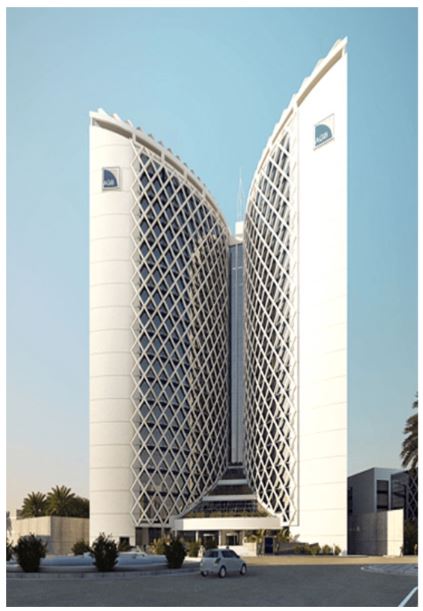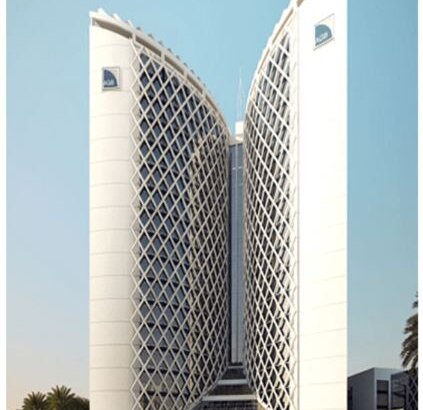Bank of Algeria: A Comprehensive Overview
Introduction
The Bank of Algeria is a pivotal institution in the economic framework of Algeria, playing a critical role in maintaining financial stability and promoting sustainable economic growth. This essay explores the various facets of the Bank of Algeria, including its features, history, organizational structure, mission, vision, values, headquarters, list of governors, founding year, present reserves, regulatory framework, monetary policy, departments, functions, exchange rate management, and employee base. A detailed analysis of these aspects provides a comprehensive understanding of the institution’s significance in Algeria’s financial landscape.

History of the Bank of Algeria
The Bank of Algeria, also known as Banque d’Algérie, was established in 1962, immediately following Algeria’s independence from French colonial rule. The formation of the bank was a crucial step in asserting Algeria’s economic sovereignty. Initially, the bank inherited the functions of the colonial banking system but rapidly transformed to align with the economic and social needs of the newly independent nation. Over the decades, the bank has evolved, adapting to global financial trends and domestic economic challenges, including periods of economic liberalization and diversification efforts.
About Us
The Bank of Algeria operates as the central bank of the country, responsible for ensuring the stability of the national currency and overseeing monetary policy. The bank serves as a regulatory authority for commercial banks and financial institutions in Algeria, striving to create a conducive environment for economic growth.
Mission
The mission of the Bank of Algeria is to maintain monetary stability, promote sustainable economic growth, and ensure the resilience of the financial system. By achieving these objectives, the bank aims to foster public confidence in the nation’s financial institutions and contribute to the broader development of the Algerian economy.
Vision
The vision of the Bank of Algeria is to be a leading central bank in Africa, recognized for its professionalism, transparency, and commitment to economic stability and growth.
Values
The core values guiding the Bank of Algeria include:
- Integrity: Upholding the highest ethical standards in all operations.
- Transparency: Ensuring clear communication and accountability to stakeholders.
- Innovation: Embracing modern technologies and methodologies to enhance efficiency.
- Resilience: Maintaining stability in the face of economic and financial challenges.
- Collaboration: Working with national and international partners to achieve common goals.
Headquarters
The headquarters of the Bank of Algeria is located in the capital city, Algiers. The iconic building symbolizes the bank’s importance and serves as the operational hub for its activities.
List of Governors
Since its inception, the Bank of Algeria has been led by several distinguished governors, each contributing to the institution’s growth and stability. Some notable governors include:
- Bachir Boumaza (first governor, 1962–1964)
- Abdelkrim Harchaoui
- Mohamed Laksaci (2001–2016)
- Rosthom Fadli (current governor as of 2023)
Present Reserves
As of recent reports, the Bank of Algeria holds substantial foreign exchange reserves, which are critical for stabilizing the Algerian dinar and supporting the country’s import needs. These reserves also provide a buffer against external economic shocks.
Regulation
The Bank of Algeria plays a central role in regulating the country’s financial sector. Its regulatory responsibilities include:
- Supervising commercial banks and financial institutions.
- Enforcing compliance with financial laws and regulations.
- Issuing licenses to operate in the banking sector.
- Monitoring and managing systemic risks to ensure financial stability.
Monetary Policy
The monetary policy of the Bank of Algeria is aimed at controlling inflation, stabilizing the national currency, and fostering economic growth. Key instruments used include:
- Interest Rates: Adjusting the benchmark interest rates to influence borrowing and lending.
- Open Market Operations: Buying and selling government securities to regulate liquidity in the banking system.
- Reserve Requirements: Mandating commercial banks to maintain a certain percentage of their deposits as reserves.
Departments and Functions
The Bank of Algeria comprises several specialized departments, each responsible for specific functions. Key departments include:
- Monetary Policy Department: Formulates and implements monetary policies.
- Banking Supervision Department: Oversees the operations of commercial banks and financial institutions.
- Currency Issuance Department: Manages the production and distribution of the Algerian dinar.
- Foreign Exchange Department: Regulates foreign currency transactions and reserves.
- Economic Research Department: Conducts research and analysis to support policy-making.
Core Functions
The primary functions of the Bank of Algeria include:
- Issuing and managing the national currency, the Algerian dinar.
- Formulating and implementing monetary policy.
- Regulating and supervising the banking sector.
- Managing the country’s foreign exchange reserves.
- Acting as a lender of last resort to financial institutions.
- Facilitating the smooth functioning of payment systems.
Exchange Rate Management
The Bank of Algeria employs a managed floating exchange rate system, wherein the value of the Algerian dinar is influenced by market forces but subject to interventions to prevent excessive volatility. This approach helps maintain external competitiveness while mitigating the impact of currency fluctuations on the domestic economy.
Number of Employees
The Bank of Algeria employs thousands of professionals across various departments and regional offices. These employees include economists, financial analysts, IT specialists, and administrative staff, all working collaboratively to achieve the bank’s objectives.
Future Challenges and Opportunities
As the global economy continues to evolve, the Bank of Algeria faces numerous challenges, including the need to modernize its financial infrastructure, address inflationary pressures, and enhance financial inclusion. However, these challenges also present opportunities for growth and innovation. By leveraging advancements in digital banking and adopting international best practices, the bank can strengthen its role in Algeria’s economic development.
Bank of Algeria
Conclusion
The Bank of Algeria stands as a cornerstone of Algeria’s financial system, playing a pivotal role in the nation’s economic stability and growth. With a rich history, a clear mission and vision, and a robust regulatory framework, the bank continues to adapt to the evolving economic landscape. By managing monetary policy, supervising financial institutions, and safeguarding reserves, the Bank of Algeria ensures the resilience of the country’s economy. As Algeria progresses towards greater economic diversification and integration into the global economy, the Bank of Algeria will remain a vital institution in shaping the nation’s financial future.

